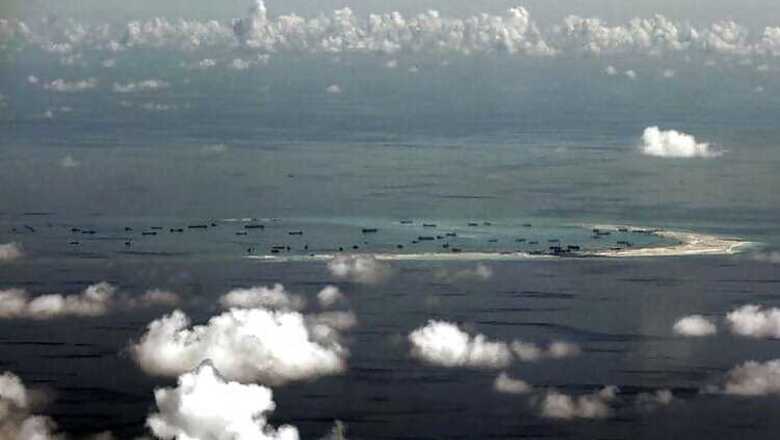
views
Singapore: The United States on Saturday called for an "immediate and lasting halt" to reclamation works in disputed waters in the South China Sea, saying Beijing's behaviour in the area was "out of step" with international norms.
"First, we want a peaceful resolution of all disputes. To that end, there should be an immediate and lasting halt to land reclamation by all claimants," US Defense Secretary Ashton Carter told a high-level security conference in Singapore.
"We also oppose any further militarisation of disputed features," he said, stressing that US forces would continue entering what he called international waters and airspace in the tense region.
Carter, speaking at the annual Shangri-La Dialogue involving defence ministers and top military officials from China, Europe and other Asia-Pacific countries, added that "with its actions in the South China Sea, China is out of step with both the international rules and norms".
He acknowledged that other claimants have developed outposts of differing scope and degree, including Vietnam with 48, the Philippines with eight, Malaysia with five and Taiwan with one.
"Yet, one country has gone much farther and much faster than any other.
"And that's China. China has reclaimed over 2,000 acres, more than all other claimants combined and more than in the entire history of the region. And China did so in only the last 18 months," Carter said.
"It is unclear how much farther China will go. That is why this stretch of water has become the source of tension in the region and front-page news around the world."
Last week the Chinese military ordered a US Navy P-8 Poseidon surveillance aircraft to leave an area above the heavily disputed Spratly Islands. But the American plane ignored the demand.
"There should be no mistake: the United States will fly, sail, and operate wherever international law allows, as US forces do all around the world," Carter said in Singapore.
"America, alongside its allies and partners in the regional architecture, will not be deterred from exercising these rights - the rights of all nations. After all, turning an underwater rock into an airfield simply does not afford the rights of sovereignty or permit restrictions on international air or maritime transit.



















Comments
0 comment